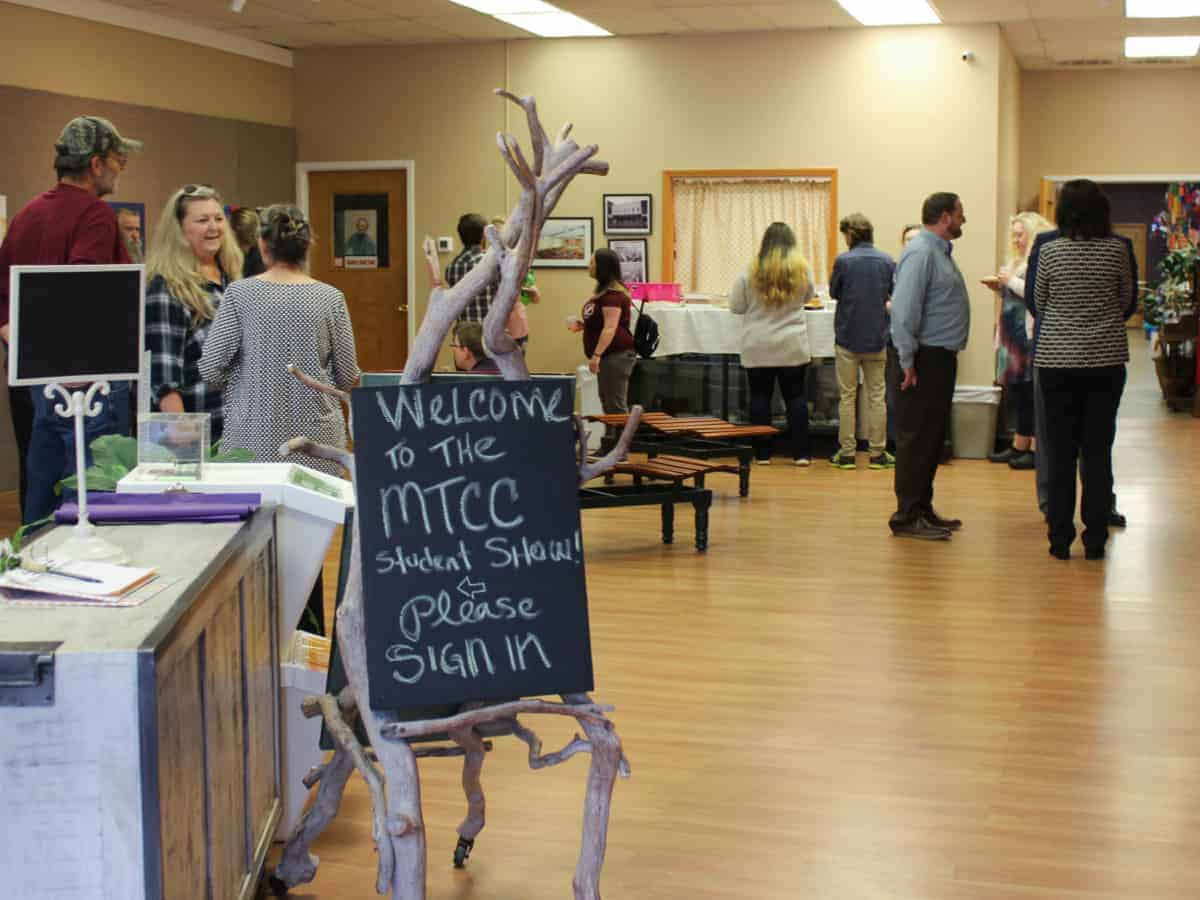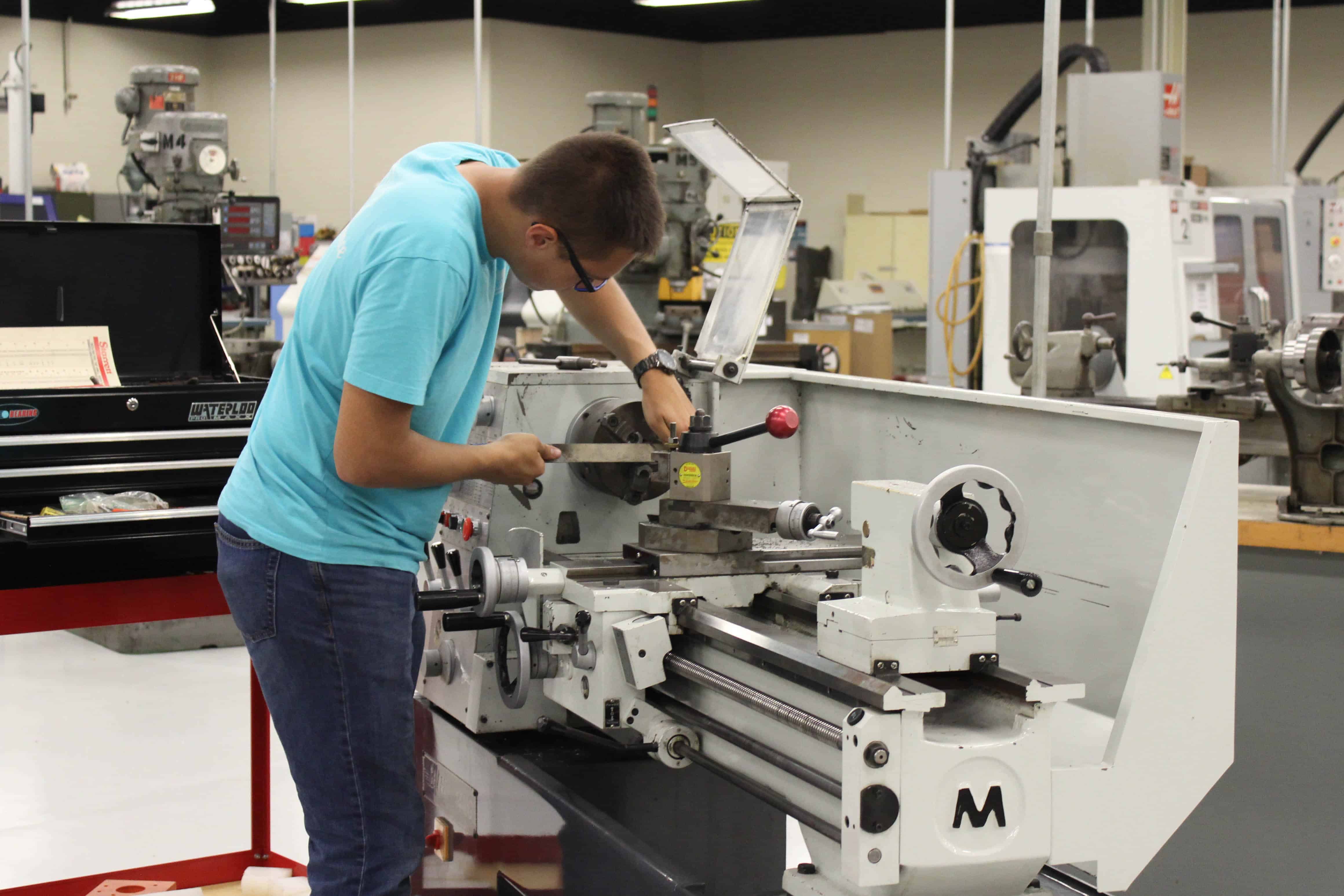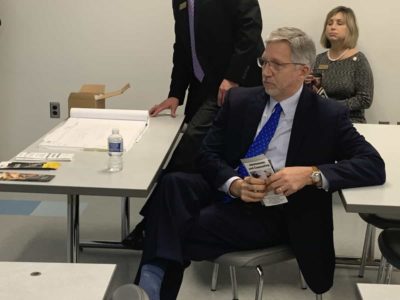

I have driven past McDowell Technical Community College countless times on the way to the mountains of North Carolina. McDowell Tech sits right off of I-40 as the interstate begins to rise and provides you with a beautiful vista of the Blue Ridge mountains. The college serves a county of 45,159 residents and nearly 6,000 students annually across their range of curriculum and short-term workforce development offerings.
I recently had the opportunity to visit McDowell Tech and spend time with the leadership team to better understand their role within their local community and their long-term vision.
Dr. John Gossett, president of McDowell Tech, has had a long career in North Carolina’s community college system. Gossett does not hesitate to share his thoughts on Twitter, both about the Tennessee Volunteers athletic program along with observations on the importance of Career and College Promise, the early college model, and the role of community colleges in economic development. Gossett wrote his dissertation on the impact of community colleges on economic development, and it is a bedrock of his vision for the college.
We began our tour at the Law Enforcement Center where we learned about their law enforcement training program and the fire and rescue program. Gossett and his team spoke to the importance of serving local fire departments, law enforcement programs, and even forestry services. We concluded our visit at the Vickie Hogan Simulation Lab where we explored their Allied Health program. Here are a few key lessons I took away from our visit.
McDowell Tech is intensely focused on partnering with the K-12 system
President Gossett brought Mark Garrett, the McDowell County Schools Superintendent, along on our tour of the college. McDowell Tech and the K-12 system have partnered together on two Cooperative Innovative High Schools along with a robust Career and College Promise (CCP) program. The CCP program alone serves 125 students, with the two Cooperative Innovative High Schools serving another 340 students combined. Through these programs, McDowell Tech is focused on what Gossett calls “multiplying exposure points to higher education for the students of our county.”
Garrett emphasized this multiple times during our visit, saying at one point, “Community colleges and the K-12 system have to find as many ways to work together as possible for the good of all of the students. It is the only way we are going to increase attainment in our region and across the state.”
McDowell Tech and McDowell County Schools work closely together to provide additional opportunities for students beyond the programs mentioned above. As Superintendent, Garrett was concerned about the drop out rate for males in McDowell County, so McDowell County Schools decided to invest in Career and Technical Education (CTE) programs, partnering with the college to provide instruction and sharing payroll for the instructors with McDowell Tech.


Gossett explained, “Research shows that ‘interest’ equals ‘success’ so we are happy to be a part of generating interest for those students, decreasing drop outs and increasing options.”
Enrollment challenges remain, but McDowell Tech is hopeful
Enrollment in community colleges has been in decline nationally for the last several years. Various factors are at play, including low unemployment, a growing economy nationally, and the rise of competition for students seeking postsecondary options from for-profit colleges and online programs.
Gossett explained that McDowell Tech, along with other rural schools, face additional challenges compared to urban and suburban schools because they have less people moving to live in the area.
Gossett credits partnerships and the development of a true business model as the secret sauce for turning enrollment around.
“We are working with the public school system as well as our private schools and home school families to offer options for students,” Gossett said. “We have also placed renewed emphasis in Occupational Extension to provide professional development and training for our employers.”
The other key part of turning around McDowell’s enrollment might end up being an emphasis on marketing their advantages, such as their small class sizes.
“Another huge advantage we have over universities and even larger community colleges is class size,” Gossett explained. “Our largest class might have 25 students, but many have 15 or less. That means students will get individualized attention. Smaller class sizes lead to student success.”
The attainment conversation must connect to jobs
When we pressed Gossett on the statewide conversation around attainment, he had a one-word response: “Jobs.”
“In my 30-plus years in higher education, I have had one student who was interested in earning a degree for self actualization,” he explained. “Everyone else understands that a degree is the pathway to a job or career. I think we need to change the conversation to focus on the end goal of jobs.”
In Gossett’s view, this also means closing the gap between policy and practice. As an example, many cosmetology students pursue an Associate in Arts and Sciences in an effort to maximize their Pell Grant funds, but the state of North Carolina does not require an associate degree to practice. Instead, students must pass an exam to receive a cosmetology license.
“Students may leave us upon state board passage without earning an associate because their ultimate goal was the career, not the degree,” Gossett said. “In my view, we are very successful in helping those students pass the exam and entering their field, but our graduation rates do not tell the true story of student success.”


